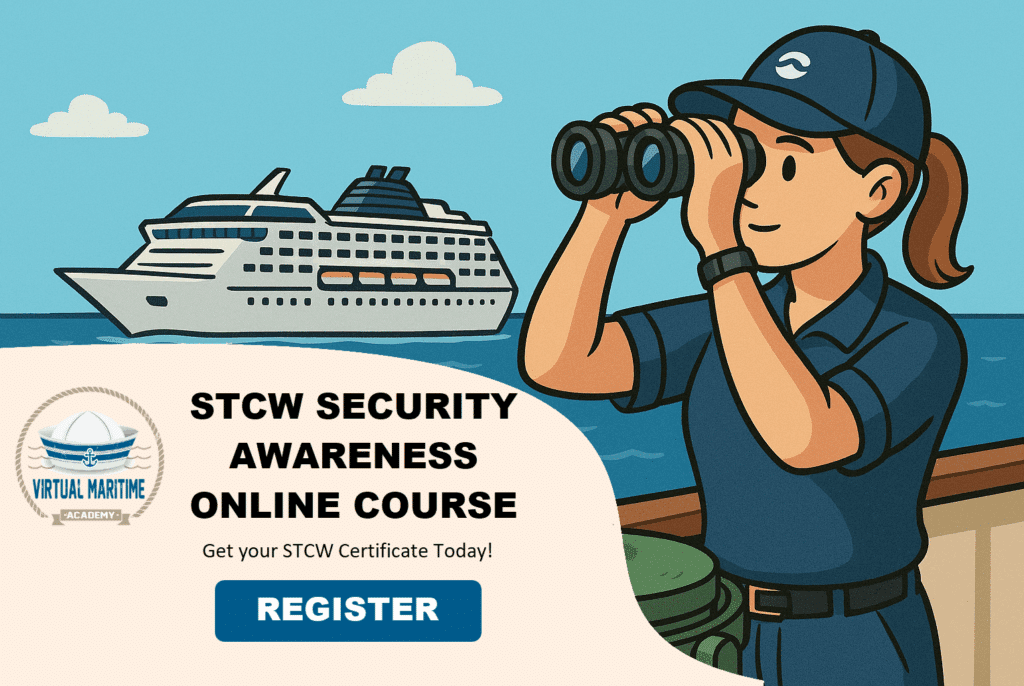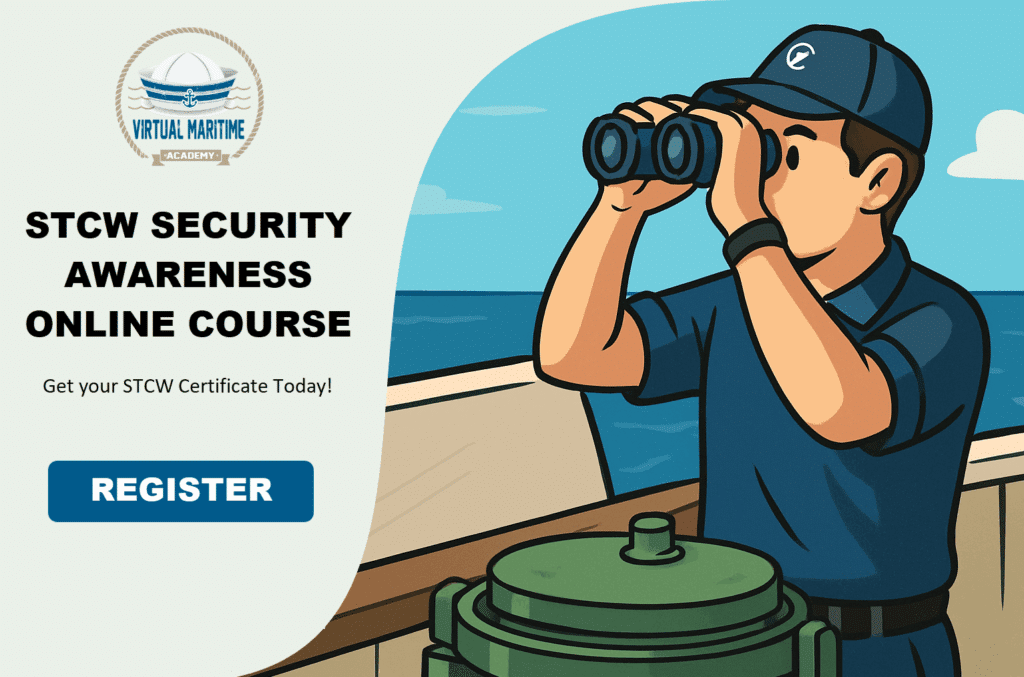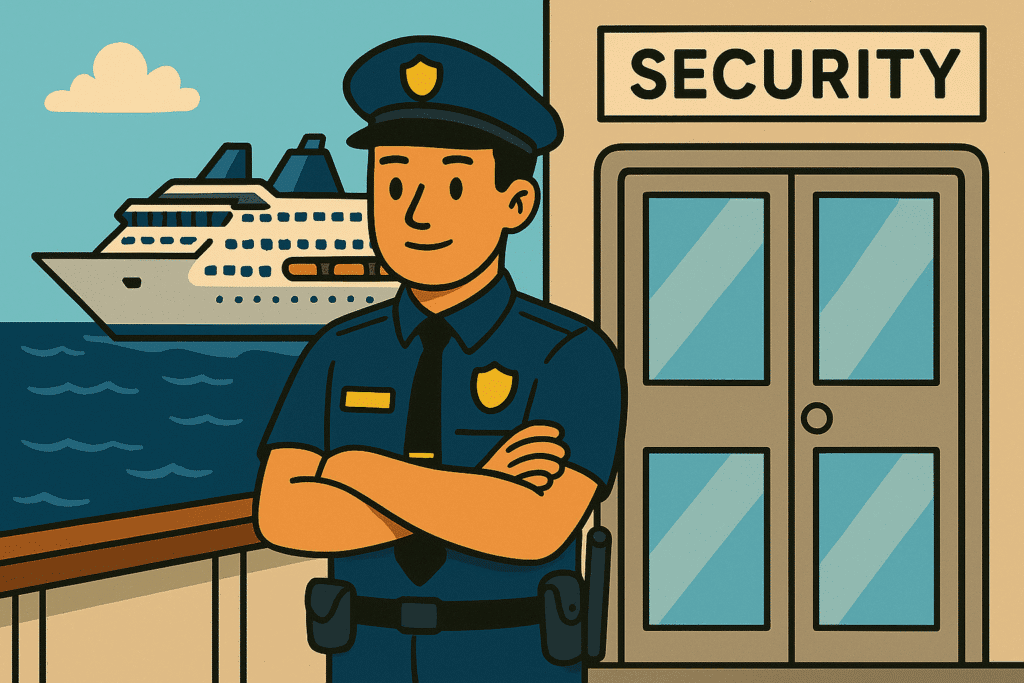In the vast and intricate world of maritime transportation and logistics, the Standards of Training, Certification, and Watchkeeping (STCW) Certification emerges as an indispensable credential for seafarers aiming to navigate global waters. This certification, recognized and enforced by the International Maritime Organization (IMO), sets the foundational benchmark for the skills and knowledge required of maritime professionals. Ensuring the safety of life at sea, safeguarding marine environments, and enhancing operational efficiency, the STCW Certification is not merely a regulatory formality but a pivotal element in the broader infrastructure of the maritime industry.
The necessity of STCW Certification cannot be overstated when considering its extensive influence on career trajectories within the maritime sector. For individuals aspiring to elevate their seafaring careers, this certification opens doors to unparalleled global opportunities, making the international job market more accessible. The rigorous training and qualifications associated with STCW Certification empower maritime professionals with advanced competencies, which in turn, heighten their employability and potential for career advancement. As the demand for proficient and certified maritime personnel continues to surge in this ever-evolving industry, STCW Certification stands out as a beacon of future career stability and professional growth, anchoring seafarers in a sea of endless possibilities.
Introduction to STCW Certification
The Standards of Training, Certification, and Watchkeeping (STCW) for Seafarers is a globally acknowledged set of standards established by the International Maritime Organization (IMO). Introduced in 1978 and significantly revised in 1995 and 2010, the STCW Convention sets forth minimum qualification standards for masters, officers, and watch personnel on seagoing merchant ships and large yachts. Adherence to STCW Certification is imperative, as it ensures that maritime professionals meet the essential training requirements and possess the crucial competencies to operate vessels safely and efficiently.
Overview of STCW Certification
STCW Certification entails a comprehensive training program designed to equip seafarers with critical skills in navigation, safety, engine maintenance, and emergency response. The certification covers a diverse range of courses and modules, tailored to different ranks and responsibilities on board a vessel. For instance, the Basic Safety Training (BST) is a fundamental course mandatory for all maritime professionals, focusing on elementary first aid, personal survival techniques, fire prevention, and fire fighting. Higher-level certifications include advanced training for roles such as masters, chief engineers, and chief mates, encompassing sophisticated subjects like advanced fire fighting, medical care, and security training for designated personnel.
The STCW Convention mandates that all signatory countries implement these standards within their jurisdictions, thereby ensuring uniformity in maritime training and certifications worldwide. The ongoing evolution of STCW standards reflects the dynamic nature of the maritime industry, aiming to address emerging challenges and technological advancements. Successful completion of STCW training not only results in certification but also signifies that the individual has met internationally recognized competence benchmarks essential for safe and effective maritime operations.
Importance and Necessity in the Maritime Industry
The maritime industry plays a pivotal role in global trade, with approximately 90% of the world’s goods transported by sea. Ensuring the safety and competence of crew members onboard vessels is paramount, making STCW Certification an indispensable credential. Here’s why STCW Certification holds critical importance and is a necessity in the maritime industry:
1. Ensures Safety and Compliance
The primary goal of the STCW Certification is to enhance the safety of life at sea. By adhering to the prescribed standards, maritime professionals are better prepared to handle emergencies, thereby reducing the risk of accidents and incidents. Compliance with STCW standards is also mandatory for vessels to operate internationally, making it crucial for maritime workers to obtain and maintain certification.
2. Promotes Uniform Training and Standards
With the international nature of the maritime industry, consistency in training and certification is vital. The STCW Convention ensures that seafarers from different countries receive standardized training, facilitating smooth collaboration and trust among international crews. This uniformity also simplifies the hiring process for shipping companies, knowing that certified personnel meet global competence requirements.
3. Enhances Career Prospects
Holding an STCW Certificate significantly boosts a seafarer’s career prospects. It not only validates their skills and knowledge but also opens doors to lucrative job opportunities worldwide. Shipping companies highly value STCW-certified professionals, often making it a requirement for employment. As a result, certification can lead to career advancement and higher earning potential.
4. Adapts to Technological Advancements
The maritime industry is continually evolving, with new technologies and practices emerging regularly. The STCW Convention is periodically updated to reflect these changes, ensuring that seafarers are trained in the latest maritime technologies and methodologies. Regular training and re-certification keep maritime professionals up-to-date with industry advancements, enhancing their competence and marketability.
5. Meets Legal and Regulatory Requirements
Compliance with STCW standards is not optional but a legal requirement for many maritime roles. Various regulatory bodies and flag states mandate STCW Certification for specific positions on their vessels. Failure to comply can result in severe penalties, fines, or even suspension of operations for shipping companies. Therefore, obtaining and maintaining STCW Certification is essential for staying within the legal framework of the maritime industry.
6. Contributes to Environmental Protection
The maritime industry has a significant impact on the environment, and the STCW Convention includes training related to environmental protection and pollution prevention. This training ensures that seafarers are aware of responsible practices and protocols to minimize environmental damage, aligning with global efforts to protect marine ecosystems and promote sustainable practices.
7. Fosters Professional Development
Apart from technical skills, STCW training encompasses personal and professional development, including leadership, teamwork, and communication skills. These competencies are crucial for a cohesive working environment onboard, improving overall efficiency and morale. Continuous professional development is encouraged through advanced courses and certifications, contributing to the holistic growth of maritime professionals.
In conclusion, STCW Certification is more than a regulatory requirement; it is a testament to the competence, preparedness, and professionalism of maritime workers. It plays a vital role in ensuring safety, standardization, and career growth within the maritime industry. As the demand for skilled maritime personnel continues to rise, the importance of STCW Certification remains ever more critical in unlocking global maritime opportunities.
https://www.virtualmaritime.academy/vma-courses/
Obtaining an STCW Certification is more than just a formality; it’s a gateway to a plethora of global maritime opportunities. As the maritime industry thrives on international standards, having this globally recognized certification means you’re equipped to handle the complexities and responsibilities of maritime roles around the world. The benefits extend beyond just the qualifications – it can be the catalyst for career advancement and stability in an industry that is looking for skilled professionals.
Career Advancements and International Job Prospects
One of the most significant advantages of STCW Certification is the remarkable career advancements it can offer. By complying with the Standards of Training, Certification, and Watchkeeping, seafarers position themselves for a wide array of international job prospects. Whether you are an entry-level deckhand or an experienced officer, the STCW Certificate can open doors to positions that might otherwise be out of reach.
Multinational shipping companies and maritime organizations recognize the STCW Certification as a mark of excellence and competency. This recognition means that certificated seafarers are sought after in the global job market. As a result, professionals with this certification have the luxury of choosing from a variety of job roles across diverse maritime sectors such as cruise ships, commercial shipping, offshore oil and gas industries, and superyachts.
The international job prospects are not limited to seafaring alone. With an STCW Certification, maritime professionals can also explore onshore opportunities such as port authorities, maritime education and training institutions, and logistics and shipping management companies. The global nature of these opportunities ensures that certified professionals can work in various parts of the world, thereby enriching their professional and personal experiences.
Furthermore, the robust training and operational standards required by STCW ensure that those who hold the certification are well-prepared to tackle the challenges posed by their roles. This preparation is invaluable in securing promotions and advancing to higher ranks within the maritime industry. With an STCW Certification, the pathway to becoming a Master Mariner or a Chief Engineer becomes far more accessible, greatly enhancing one’s career prospects.
Industry Demand and Future Career Stability
The maritime industry is continually evolving, driven by global trade and economic trends. With the growth of international trade, there is a constant demand for well-trained and qualified maritime professionals. This demand underscores the importance of STCW Certification, as it essentially assures employers that the individual meets stringent international standards.
According to various maritime employment reports, the demand for certified seafarers is expected to grow in the coming years. This projected growth is linked to several factors, including the expansion of maritime trade routes, an increase in maritime tourism, and the ongoing expansion of offshore resource extraction. With these trends, having STCW Certification is not just advantageous but often essential for anyone looking to enter or advance within the industry.
In addition, many countries and regions have implemented strict regulatory requirements for maritime operations, often mandating that seafarers hold valid STCW Certifications. This regulatory landscape ensures that certified seafarers always remain in high demand, contributing to long-term job security and career stability.
The benefits of STCW Certification extend to future-proofing one’s career in the maritime sector. As technologies evolve and new maritime challenges emerge, STCW-certified individuals are more likely to adapt and thrive. The certification process itself involves rigorous training in safety, navigation, fire prevention, personal survival techniques, and many other crucial areas. This comprehensive training ensures that certified professionals are versatile and can handle various operational scenarios, making them invaluable assets to any maritime organization.
Additionally, obtaining and maintaining an STCW Certification requires continuous professional development. The regular updating and refreshing of skills ensure that certified professionals are always abreast of the latest industry standards and practices. This continuous learning is vital for career stability and progression, as it keeps professionals relevant and competent in an ever-changing industry.
Employers often prefer candidates who not only have the technical skills but also demonstrate a commitment to ongoing education and compliance with international standards. Possessing an STCW Certification signals to potential employers that you are dedicated to maintaining high standards of professionalism – a trait that is highly regarded in the maritime industry.
In summary, the STCW Certification is a crucial investment for anyone looking to maximize their opportunities in the maritime sector. It offers a clear pathway to career advancement and opens up international job prospects that might otherwise be unavailable. Furthermore, the industry demand for certified professionals and the future career stability that comes with it make obtaining an STCW Certification an essential step for current and aspiring maritime professionals.
In conclusion, obtaining STCW Certification stands as a crucial milestone for anyone aspiring to thrive in the global maritime industry. This certification, mandated by the International Maritime Organization, ensures that seafarers are equipped with the necessary skills and knowledge to operate safely and efficiently across international waters. Recognized worldwide, STCW Certification not only affirms a mariner’s competency but also enhances their employability on a global scale.
The opportunities unlocked by this certification are manifold. For one, it opens the door to advanced career pathways and a plethora of international job prospects that were previously inaccessible. Seafarers gain a competitive edge, positioning themselves as desirable candidates for employers seeking skilled and certified professionals. Moreover, the dynamic nature of the maritime industry, paired with a consistent and growing demand for qualified personnel, assures a stable and promising career for those who attain STCW Certification.
As the maritime sector continues to evolve and expand in response to global trade demands, the importance of having a standardized certification cannot be overstated. It plays a pivotal role in upholding safety, efficiency, and professionalism within the industry. Ultimately, for maritime professionals eager to embark on a successful and internationally recognized career, STCW Certification is an indispensable credential that unlocks a world of opportunities and fosters long-term career growth and stability.











